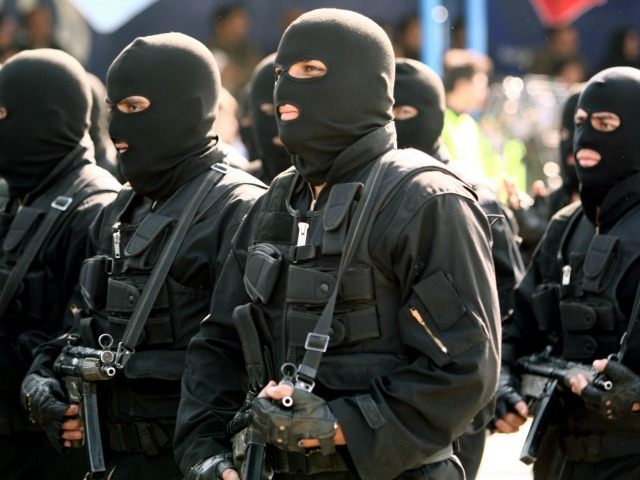Iranian Foreign Minister Mohammed Javad Zarif warned Saudi Arabia not to send ground forces into Syria, as the Saudis have declared their intention to do. Anticipating charges of hypocrisy over the thousands of troops Iran has deployed in Syria, Zarif insisted they were merely “military advisers.”
That claim is likely to draw derisive laughter from anyone familiar with the activities of Iranian troops, “volunteer militia,” and proxies like Hezbollah in the Syrian civil war, but Zarif’s more substantial point is that Iranian forces were invited into the theater by the Shiite-aligned government of Bashar Assad, who might very well have lost the war without assistance from Iran and Russia.
Estimates of how many Iranians are in Syria dispensing “advice” to the regime vary. In October, the UK Independent wrote of “thousands” of Iranians joining with Hezbollah forces and Syrian regime troops for the assault on the key northern city of Aleppo. The UK Guardian narrowed that number to about 2,000, plus “hundreds of men” from Iran’s elite forces engaged across Syria. The Wall Street Journal put the total number of troops from Iran’s Revolutionary Guard Corps in Syria at closer to 7,000.
The Iranian opposition claims a vastly higher number of “Revolutionary Guards and their non-Iranian mercenaries” are fighting in Syria as of February 2016: 60,000 in total. According to the opposition, the number of Iranian troops surged enormously after the smaller force deployed in the last three months of 2015 failed to achieve results.
The Saudis are considerably less friendly to the regime, and would be unlikely to receive such an invitation from Damascus, even though they would nominally be assisting the U.S.-led coalition in attacking the Islamic State.
“Those who are operating in Syria without the authority of the sovereign government in Syria are violating international law,” insisted Zarif at a news conference from the European Parliament in Brussels, as reported by AFP.
“Iran does not have boots on the ground in Syria… we have military advisors in Syria, as we have them in other places,” the Iranian Foreign Minister claimed, saying Iran enters Syria and those “other places” at the invitation of their legitimate governments.
Zarif also sought to push Iran’s increasingly bitter rival Saudi Arabia out of the Syrian peace process.
“People from outside cannot say what should be the outcome of the negotiations,” he said. “The outcome of the negotiations will be determined by the Syrians inside the negotiating room, not in the capitals of the region particularly, in Riyadh. They will not and cannot make the decision for the people in Syria.”
From there, Zarif swung into a denunciation of Saudi Arabia for interfering the Yemeni civil war, accusing them of causing massive civilian casualties.
“If we are talking about military forces, we have to stop the bombardment of Yemen, which is taking place on a daily basis against innocent civilians, killing a lot of people,” said Zarif. “There are no military targets to hit any more in Yemen. We need to end the atrocities and we need to end it now.”
Just a week ago, Zarif was saying Iran and Saudi Arabia could work together on the Syrian crisis and other issues.
“Extremists… are as much a threat to our brothers in Saudi Arabia as they are to the rest of the region. We are bound by a common destiny,” he said at the Munich international security conference, as quoted by AFP. “Iran and Saudi Arabia can have shared interests in Syria — a stable Syria, a no-terrorist Syria, a Syria that is multi-ethnic, multi-religious. We can all agree on that.”
On that occasion, Zarif castigated Saudi Arabia for trying to muscle Iran out of Syrian negotiations… exactly as he is now insisting the Saudis have no role to play.

COMMENTS
Please let us know if you're having issues with commenting.